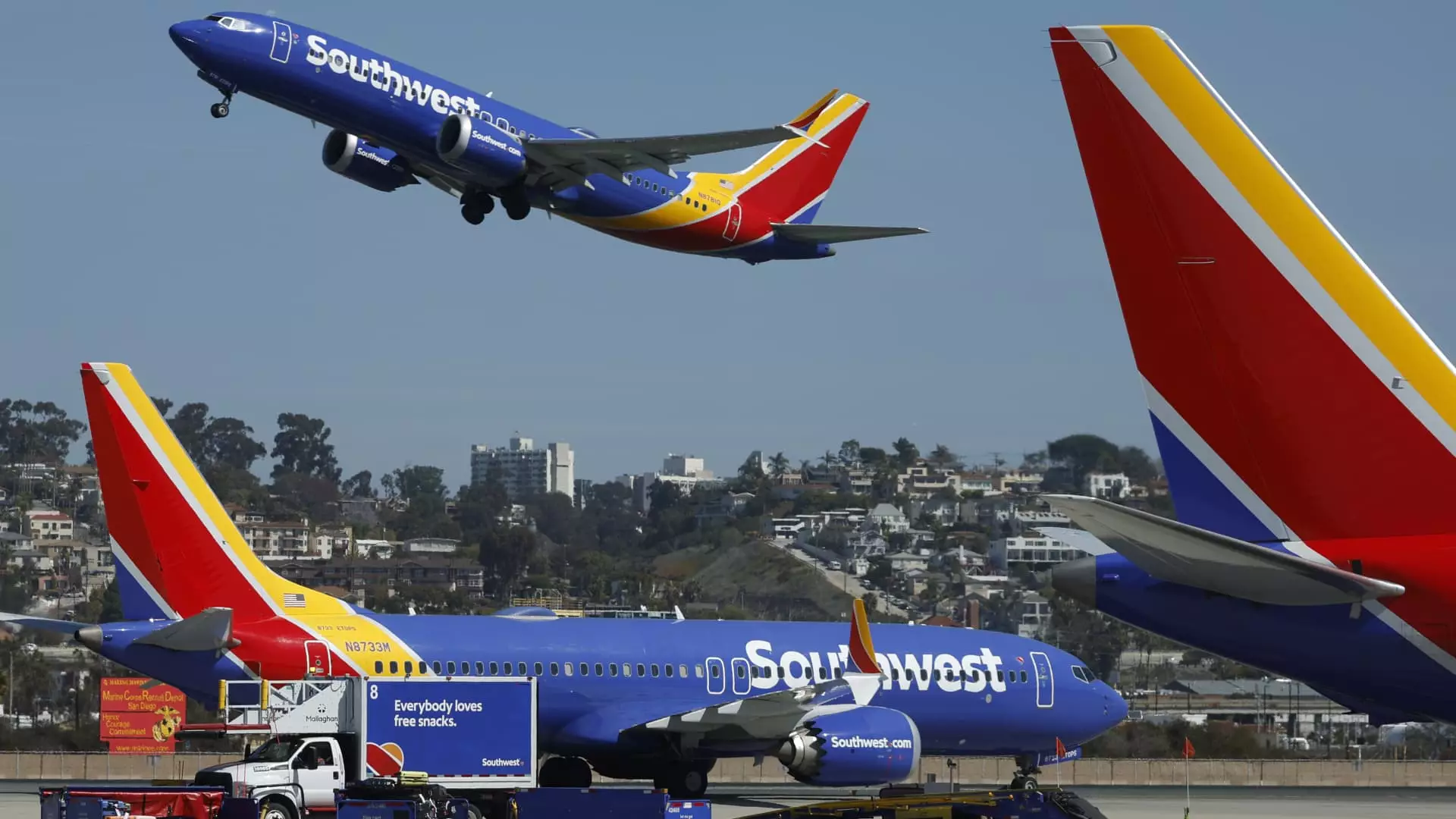With the airline industry undergoing seismic shifts in recent years, Southwest Airlines is contemplating a transformative journey that could usher in a new era of customer service. This ambition was articulated by CEO Bob Jordan during a recent interview, where he expressed that the airline is keeping its options open, contemplating initiatives such as luxury airport lounges, premium seating arrangements, and even long-haul international flights. The intent behind these changes is clear: to retain high-spending customers who might otherwise choose competitors that currently offer services that Southwest does not.
Jordan’s comments reflect an industry-wide realization that the era of “no-frills” flying is evolving. As consumer needs change, airlines must be responsive to ensure continued loyalty. While Southwest has historically differentiated itself with policies like open seating and free checked baggage, the competitive landscape is pushing them to rethink their business model. The landscape of air travel is littered with the remnants of airlines that failed to adapt, and Southwest seems determined to avoid this fate.
The Pressure of Competition
In his dialogue with CNBC, Jordan acknowledged the significant pressure posed by competing carriers. Airlines such as Delta, United, and American have recognized the growing trend towards luxury and higher-quality experiences within air travel, investing heavily in airport lounges and premium offerings. For instance, American Airlines recently announced plans to nearly double its lounge space in Miami, a clear indicator of its commitment to enhancing customer experience.
In the face of these competitive pressures, Southwest has also been compelled to rethink its core ethos. As it unwinds some of its foundational policies—such as its well-loved open seating—it risks alienating its loyal customer base. However, the underlying message from Jordan is that this maneuvering is not merely reactive but a strategic shift aimed at capturing a demographic that seeks more than just a low-cost flight.
The Evolving Landscape of Airfare
Beyond service offerings, Jordan pointed out a notable trend in the current airfare environment. The summer season, traditionally a peak period for pricing, has seen cheaper fares across the board. This unexpected drop has prompted airlines, including Southwest, to reevaluate their financial forecasts. As fares decrease, maintaining market share becomes crucial, particularly for a carrier that has prided itself on low costs.
Interestingly, the introduction of no-frills economy tickets and baggage fees has yet to drive customers to other airlines, a win for Southwest during tumultuous times. Yet, the importance of appealing to the premium market cannot be overstated. Loyal customers in key markets, such as Nashville—where Southwest holds a commanding market share—are signaling their desire for upgraded options. This is not a fleeting trend; it is a clarion call for Southwest to innovate or risk losing a generation of customers drawn to more luxurious alternatives.
The Winds of Change: International Aspirations
For an airline that has relied almost exclusively on a single aircraft type—the Boeing 737—for over fifty years, the prospect of extending its reach internationally raises significant questions. Jordan hinted at the possibility of acquiring longer-haul aircraft to facilitate flights to Europe, showcasing a readiness to explore new horizons. This consideration reflects a broader aspiration within Southwest to broaden its service offerings and fulfill customer desires for international travel without switching airlines.
While no definitive commitments have been made regarding the acquisition of long-haul aircraft, the notion of landing a Southwest plane in Europe signals a monumental shift in their operational strategy. With existing international partnerships, such as those with Icelandair and China Airlines, the groundwork for more extensive international operations is starting to take shape.
As Southwest Airlines stands at a pivotal junction in its evolution, the coming years are likely to reveal how adeptly it can balance its foundational values while adapting to the changing landscape of air travel. The commitment to reassessing customer needs and aspirations is both a challenge and an opportunity—an opportunity to redefine the airline experience in a way that resonates with today’s high-spending travelers.


Leave a Reply